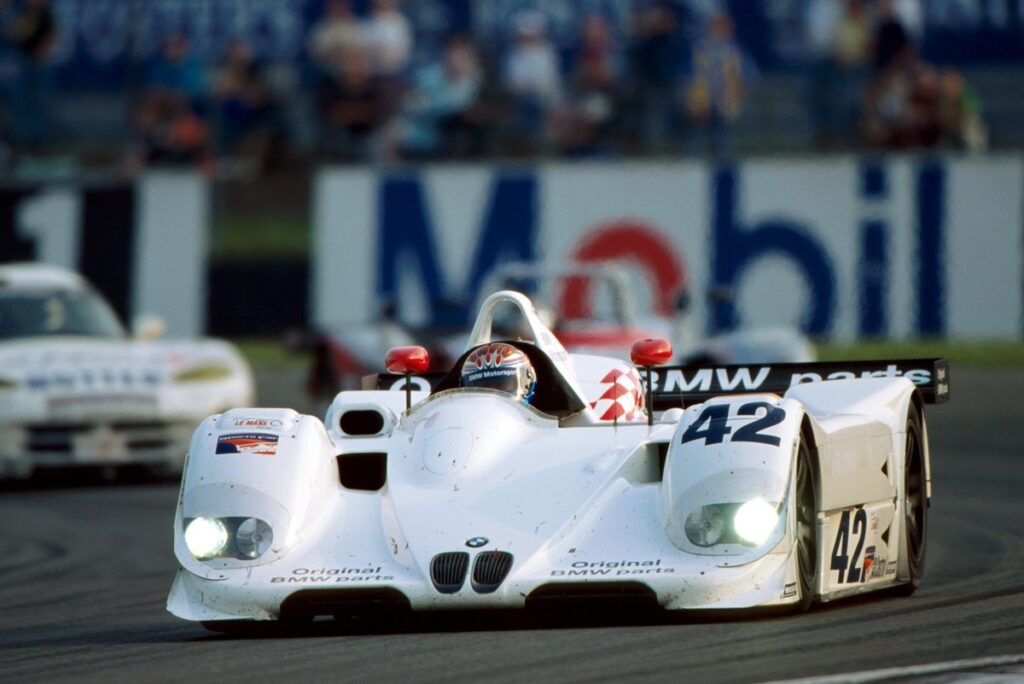To make a winning start with a brand-new car and team-mate partnership, everything must go right. But Jorg Muller didn’t especially fancy his chances heading into the 1999 Sebring 12 Hours in the Williams-designed BMW V12 LMR after testing at Homestead was blighted by gearbox problems. “The diff always blew apart!” he says.
Liberal application of lock wire from his Schnitzer mechanics meant the car held together, while the drivers did their bit in what was then the closest Sebring finish, breaking a 29-year record. Muller’s working relationship with JJ Lehto, the driver he picks as his favourite team-mate, couldn’t have had a better opening act.
Muller’s three-year association with Lehto had plenty of high points and a fair number of lows too. Spanning two different cars, racing in prototypes and GTs, they won seven races together and could have had several more.
The most famous, and most painful near-miss came at Le Mans in 1999. Sharing with Lehto and Tom Kristensen as at Sebring, a line-up Muller describes as “the dream team” before the Dane went on to forge his successful association with Audi, their V12 LMR was three laps clear of the eventual winning sister car when a freak problem caused Lehto to crash out.
One more lap was needed at Mosport in 2000, when Muller on fresh slicks carved time out of Rinaldo Capello to fall 0.148s behind at the line, a slow puncture thwarted them at the Nurburgring that year while on course to beat the winning Panoz, while Muller’s puzzling spin three laps away from the finish at Petit Le Mans in 1999 caused another victory to slip away.
But Muller looks back with plenty of fondness at a collaboration that culminated in Muller claiming the American Le Mans Series GT class title in 2001 with the M3 GTR. Three years apart in age, they rubbed along well.
“Immediately we had a good connection together, we had the same sense of humour,” reflects Muller. “We just loved what we were doing and we were really competitive. It was just personally a very good relationship. We had a great time. He was such a lovely, open-minded guy and a good person, really.”
Victory on their first time as team-mates at Sebring in 1999 would become a common theme over the next three years for Muller and Lehto, pictured here at Mid-Ohio in 2001
Photo by: BMW AG
Returning to the BMW fold after spending 1998 in Champ Car, Lehto had been a key figure in its factory FIA GT programme in 1997. That year he and Steve Soper had come close to the title with the BMW-powered McLaren F1 GTR, before ultimately being surpassed by a Mercedes that moved the goalposts. But Muller, in his second proper sportscar campaign after a 1998 FIA GT season spent with Porsche unable to prevent its Mercedes drubbing, was unfazed by the 1995 Le Mans winner’s pedigree.
Muller too was already known to BMW, having raced in the German Super Touring championship in 1995-96 and won the Spa 24 Hours for the brand in 1996 on the same weekend that he’d taken another step towards his Formula 3000 championship success by finishing second at Hockenheim. And at the Schnitzer team “we were on the same level of speed and at that time there was not a not a number one guy”.
It also helped matters that Muller and Lehto had “no big differences” in terms of style. The main preference the Finn had was “he just wanted to do the qualifying all the time”, laughs Muller, who was happy to leave him to it.
“We were having a few beers afterwards and that was it, we win and lose together” Jorg Muller
“I knew we as a team will win and we lose together, so he most of the time did qualifying, and most of the time I did the start of the race,” says the German, who today works with the Walkenhorst Aston Martin team in the ADAC GT Masters series. “That was something which was quite clear between us.
“But for the rest, we set up the car both together and both of us were quite easy in handling cars which are not 100% fitting to your driving style. We were always both happy having a little bit of compromises.”
After their Sebring triumph, Lehto and Muller appeared set to continue their 100% hit-rate at Le Mans once their tooth-and-nail battle with Toyota was ended abruptly by Thierry Boutsen being shovelled into the wall by a Porsche GT car at the Dunlop Chicane. But that all changed with a little over five hours to go. “A roll-bar link came loose and wedged the throttle open as Lehto was negotiating the Porsche Curves,” reported Autosport. “The resulting damage was enough to prevent the car from returning to the pits.” Muller never came so close to winning Le Mans again.
“It was so easy going, we were laughing all the time and then it happened,” he sighs.
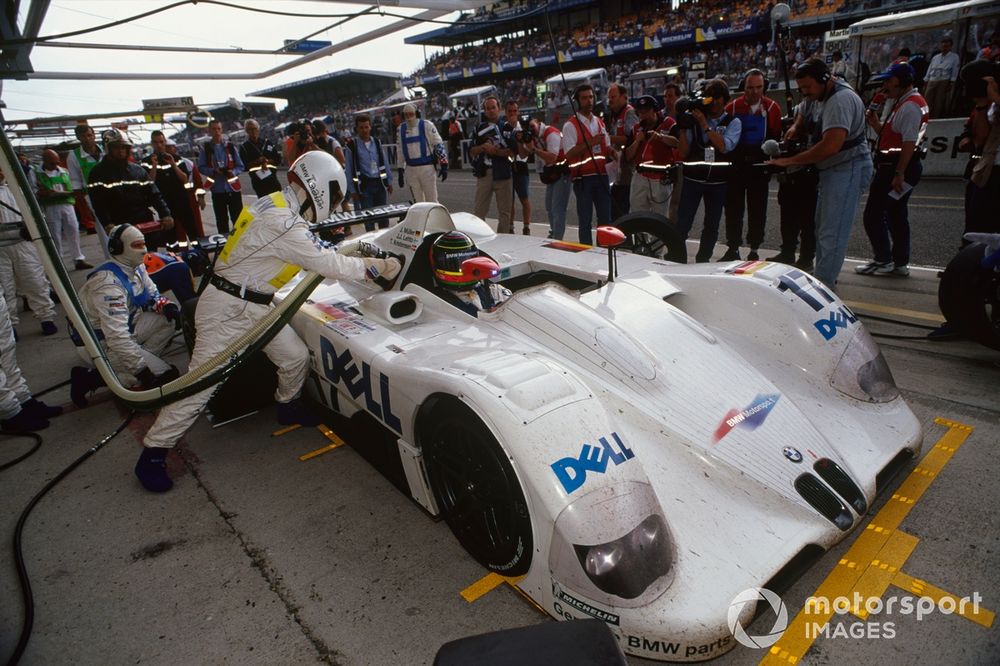
Le Mans victory eluded Muller, Lehto and Kristensen in 1999
Photo by: Motorsport Images
There was more misfortune when they were reunited at the Petit Le Mans ALMS round, a series Lehto had predominantly contested with Soper. What Muller attributes to a small lapse in concentration resulted in him rotating and becoming stranded in the gravel to turn a certain win into third place.
“I still don’t know what happened,” says the 1993 Macau Grand Prix winner. “It was something like half-lap leading and I wasn’t pushing anymore. Later on, we looked into the data and it looked like I downshifted one gear too much, that I shifted down to first instead of second. To be honest, I probably lost concentration at that time just by cruising.”
It was another setback to Lehto’s ALMS title hopes after BMW skipped the first of two visits to Road Atlanta and withdrawn from Mosport on safety grounds. But the error was not the biggest factor that assisted Dyson Racing Riley & Scott driver Elliot Forbes-Robinson’s bid to claim a surprising title – both by account of the 56-year-old’s advancing years and lack of any wins.
Lehto was docked 32 points from his Sebring victory for racing on his international license rather than one issued by the series organisers and lost the title by 18. In any case, the Petit faux pas didn’t wreck Muller’s relationship with Lehto.
“We were having a few beers afterwards and that was it, we win and lose together,” reflects Muller. “He was pretty happy to drive with me afterwards.”
For 2000 the year-old V12 LMR was superseded by the new Audi R8, a much-improved version of the R8R that had finished a distant third at Le Mans in 1999. However, the R8 was kept back after finishing first and second at Sebring while preparing for its successful assault on Le Mans, leaving Audi’s drivers to do battle with the R8R in the meantime.
Lehto and Muller started the ALMS season with a run of six straight podiums, including two wins at Charlotte and Silverstone, but they only managed two podiums from the final six rounds as the R8 proved too strong. BMW didn’t make the trip to Australia for the ‘Race of a Thousand Years’ at Adelaide on New Year’s Eve.
“It was developing at the time very quickly, and normally you should have developed a new car also with BMW, but that was how it was,” sighs Muller. But he observes that neither driver was lacking for motivation as they attempted the unequal struggle of keeping pace.
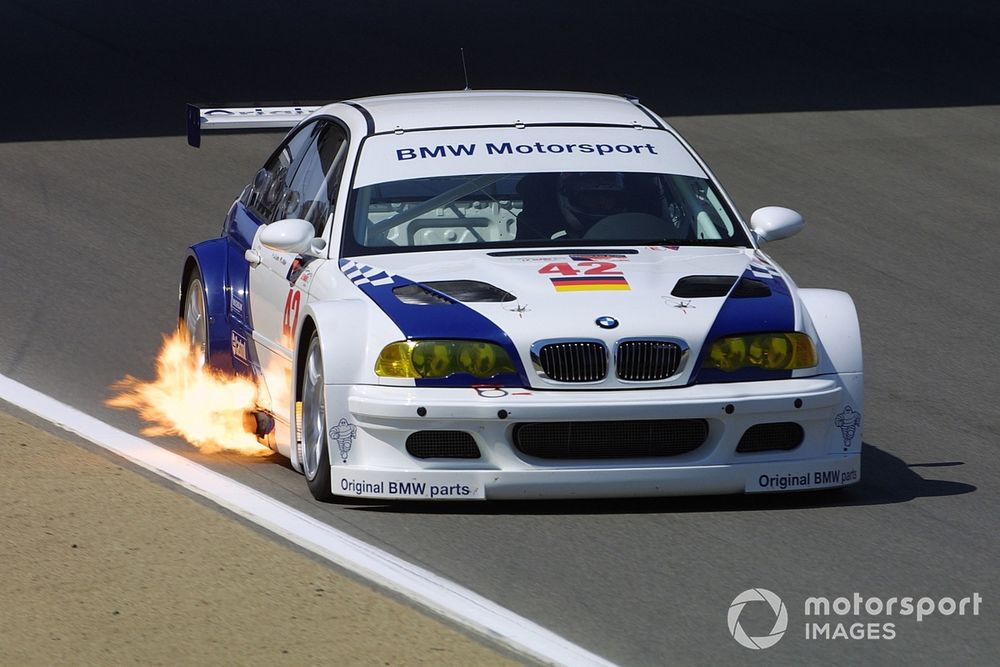
Muller took the ALMS GT crown in 2001 after sharing for the bulk of the season with Lehto in the awesome M3 GTR
Photo by: Sutton Images
“He had the fire all the time, so that didn’t come back as we were underdogs or something,” reckons Muller. “We were both racers, and when you’re a racer, you give it everything.”
The M3 GTR holds a claim to be among the greatest sportscars never to race at Le Mans, though Muller concedes it was a bit of a comedown after racing the prototype and conducting F1 tyre testing for Michelin in 2000.
“It was really hard to get into that GTR because that meant the F1 career is over,” the former Arrows and Sauber tester admits.
“Both of us were quite easy in handling cars which are not 100% fitting to your driving style. We were always both happy having a little bit of compromises” Jorg Muller
Remaining with Schnitzer, Muller and Lehto were the clear class of the field in 2001, with Porsche’s challenge led by Sascha Maassen unable to keep pace once the GTR’s early reliability glitches were ironed out. There were victories at Sears Point, Mosport, Mid-Ohio and Laguna Seca, but Muller won the GT title solo after being split from Lehto for the Petit Le Mans finale.
As Schnitzer sought to make doubly sure of its chances, Muller paired up with non-related namesake Dirk and finished second to the PTG BMW, while a troubled race for Lehto, Fredrik Ekblom and Karl Wendlinger yielded only fourth.
Muller continued to race with BMW after its exit from the World Touring Car Championship, in which he peaked with second in 2006, and claimed Nurburgring 24 Hours victories for the brand in 2004 and 2010. Lehto meanwhile joined Cadillac for 2002, then arrived at Audi in 2003, taking the ALMS title with Marco Werner in 2004. He won Le Mans for a second time alongside Werner and Kristensen in 2005.
Werner also singles out Lehto as his favourite team-mate, and his observations tally with those of Muller, calling him a “very open and above all straightforward guy”.
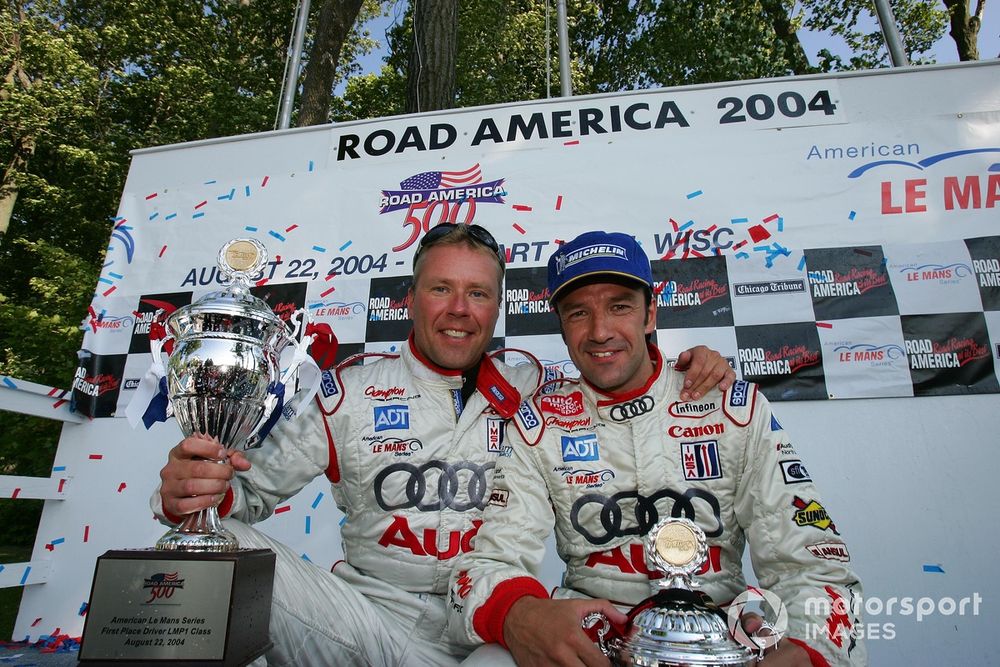
A three-time Le Mans winner with Audi, Werner also picks Lehto as his favourite team-mate
Photo by: Rick Dole / Motorsport Images
“He never talked around any problem because it might be somehow unpleasant for him, even if he criticised you,” asserts Werner, now a prolific historic racer. “I’ve met a lot of people in my life who only do that behind your back to make themselves look good to you, so there were never any political games with him.
“And on the track, he was one of the fastest I’ve ever met. He was a team player and motivated me, which of course also benefited him in endurance racing. He never kept advantages to himself but saw us as a team for a better result. He pushed me to higher levels.
“We were a good combination. You rarely make real friends in motorsport, but I really had a great relationship with JJ.”
It was the same story for Muller.
“Once you got into the car, we were 110% motivated, even getting out of the car, talking to the engineers,” he considers. “But you could really feel that we were enjoying what we are doing.”
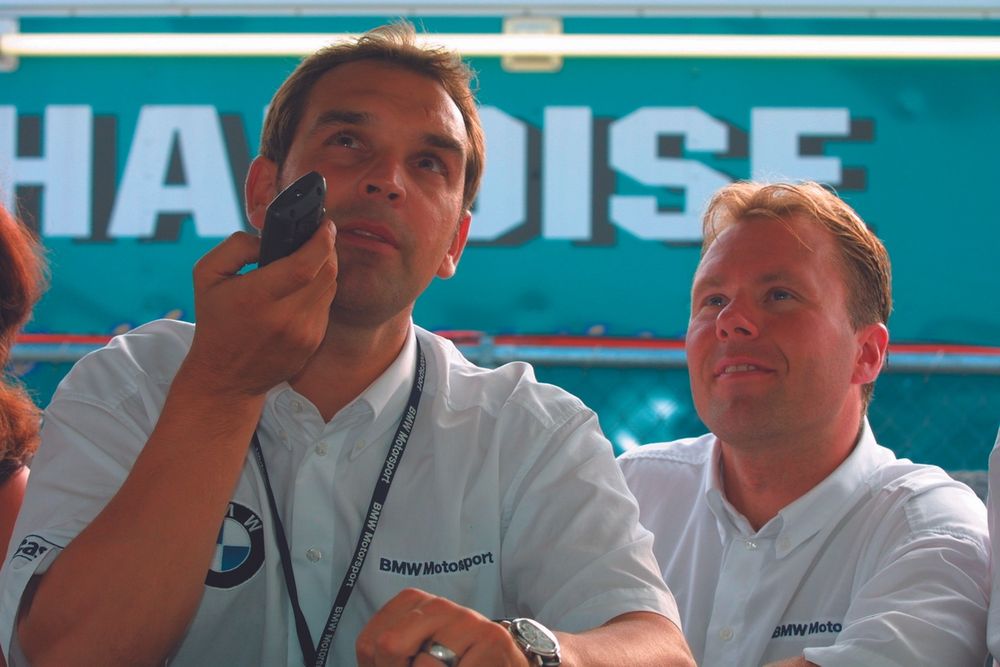
Muller and Lehto proved a well-matched pair during their time together
Photo by: BMW AG
Read the full article here

